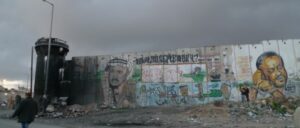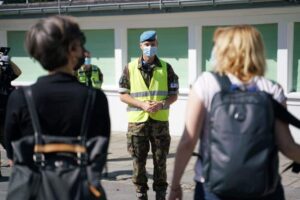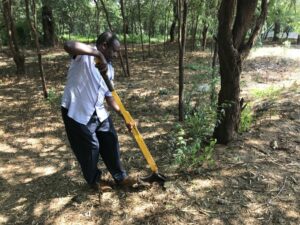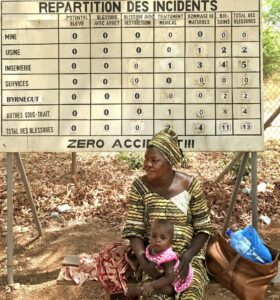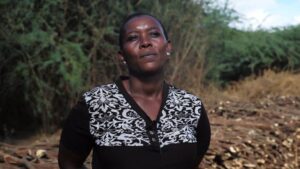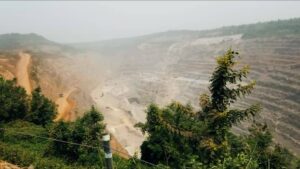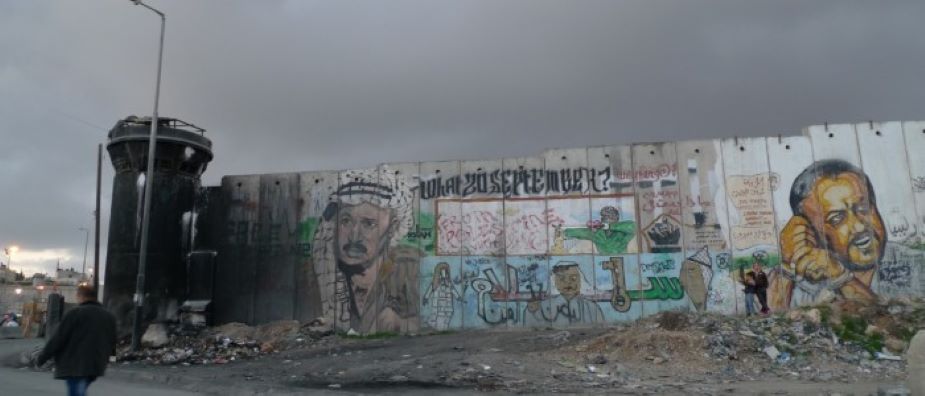
Three viewpoints about pluralistic memories regarding three armed conflicts
What is the meaning of ‘normalisation’ in an occupied territory? Why, after two generations, do people in displaced communities feel like foreigners wherever they go? How do solidarities contribute to the victims’ futures despite the violence of war? These are some of the questions that were raised as part of the international research project Pluralistic Memories, which focuses on collective memories during armed conflicts in Sri Lanka, Palestine and Burundi. War narratives from these countries are proof of the resilience of populations who face the instrumentalization of trauma by warmongers. Six years of research, however, have also shed light on realities that sociological theories about post-conflict transitions have not come to terms with. “The strength of the outcomes is also due to the individuals involved in the project, which ended in 2020”, stated Guy Elcheroth, Program Director at the University of Lausanne. Among them, three young researchers working together on the project, who have undergone their own war experiences: Palestinian Mai Albzour, Sri Lankan Esther Surenthiraraj, and Croatian Sandra Penic.
As part of her post doctorate at the University of Lausanne, Penic coordinated an extensive survey in all three countries. “The project is based on the hypothesis that, when it comes to the experience of war, a diversity of narratives fosters tolerance and prevents simplistic mindsets that in turn breed hate”, explained Penic, who admits that her interest in the project is linked to her own experience of war in the former Yugoslavia. “I wanted to focus on the issue of transition after witnessing the resurgence of nationalism in the Balkans”. Penic, who at the beginning of the war was forced to flee Vukovar and go to Zagreb, knows that “history is always more complex than the binary ‘them against us’ narrative.I remember receiving help throughout my entire journey. War does not only create passive victims; it also generates solidarities”. The young woman provides a recent example to illustrate her point: “Support systems exist even along the Ukrainian border; and some Russians are raising their voices against their own government despite the immense personal cost. We need to hear about these complex narratives”.
“Exposure to violence can create opposition to violence”
Penic tested survey questionnaires on her own family. She nevertheless needed local contacts, particularly to be able to reach Palestinians on the West Bank and in Jerusalem, and members of the Muslim community who were forcibly evicted from Sri Lanka in 1990. To cover such difficult locations, she worked with seven PhDs such as Mai Albzour and Esther Surenthiraraj. Two hundred personal stories and several thousand surveys later, Penic defended the study results: people who acknowledge the diversity of war experiences are more receptive towards transitional justice, and are active participants in such a transition. For someone who believes in the importance of sharing stories about mutual assistance and empathy, these are significant results. “War definitely has detrimental effects such as hate. It, however, also sparks resilience; exposure to violence can create opposition to violence. We found this to be true everywhere”. But access to narratives in different locations, in Palestine in particular, also made her aware of the limited scope of sociological tools that were used.
‘The concepts of social psychology developed in relatively peaceful Western contexts do not easily apply in Palestine. We had envisioned a universal process, but the violence of occupation greatly hampers solidarities among groups. Worse yet, in the event they do exist, they sometime undermine the recognition of injustice’.
Mai Albzour has a very similar point of view. Albzour joined the Pluralistic Memory Project in 2015, as a PhD student at the University of Lausanne. The young Palestinian researcher at Birzeit University contributed to conducting the projects’ two field surveys in the West Bank and Jerusalem. According to her, data collection was a huge challenge, where, “the Palestinian society is a highly politicized society, but it is exposed to a fierce colonial monitoring system and a national authoritarian monitoring system as well”. The daily life of Palestinians is complex, and bears many aspects of suffering and steadfastness at the same time, as she stated. For her, doing research under a colonial reality while keeping pace with the global production of knowledge multiplies the structural differences between the researchers themselves. According to her, for any researcher who belongs to any of the structurally disadvantaged group, a lot of effort is needed to catch up with the boat. However, the research collaboration with the University of Lausanne was nonetheless worth it, affirmed Albzour: “The project entails extensive academic discussion”; which led to the development of joint research projects that study the psychological mechanisms beyond the reality of segregation in Palestine.
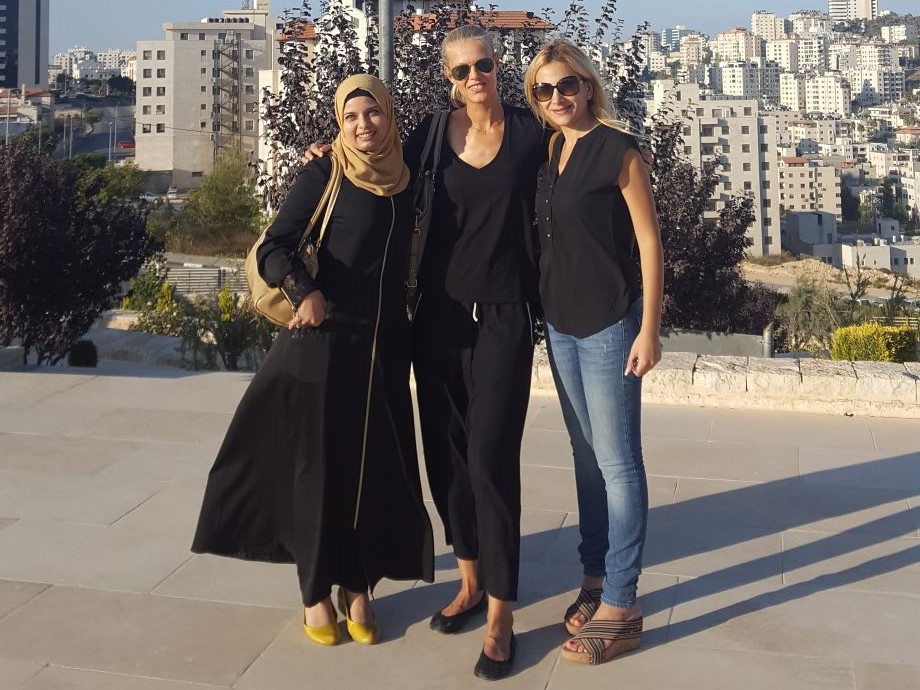
Asymmetrical power relations
Albzour’s studied Palestinians’ contact with Israelis in her research project, which is one of very few field studies that look upon this subject matter. Where, “Personal and professional relations between those in the West Bank and their colonisers are very rare. Contacts with Israelis mostly consist of interactions with military forces and are characterised by violence and dehumanisation”, explained Albzour. Her research project dealt with one of the main assumptions of the intergroup contact theory, which has been used by civil society organizations as a tool for conflict-reduction. In Palestine, contact interventions to build “normalization” have been criticized, notably for their incompatibility with the everyday reality of the participants, given the structural context of asymmetric power relations in which they occur. Albzour and Penic are working on a new project about the impact of living near surveillance facilities. As a result of satellite image data, Penic explained that on average, living quarters on the West Bank are 2.5 km from a surveillance station, and inhabitants are likely to come across five checkpoints within a 10 km radius.
Conduct surveys in highly militarised zones
The Northern Muslim community of Sri Lanka: another country; another reality. When I contacted Esther Surenthiraraj in the summer of 2022, the Sri Lankan government had been recently toppled. The researcher was caught between her hope of enhanced openness in her country and the risk of political and economic chaos. In 2015, at the start of the Pluralistic Memories project, political openness seemed to be at hand. Although short lived, it was long enough to launch a survey study, a project that would have been difficult to undertake under a repressive and authoritarian regime. “We decided to use the opportunity to conduct surveys in highly militarised zones and to talk with displaced Muslims, members of a forgotten community in Sri Lanka”, recalled the Sri Lankan researcher, who explained that in 1990, Muslims were evicted from the country’s northern province and have lived in ‘prolonged displacement’ ever since. Surenthiraraj ponders the policies that see such post-war displacements as periods of transition: “They conceal the complex situations of individuals for whom displacement is never-ending. Staying or going back is not an option for these Muslims. It is a reality they have to live with; they are torn between their native land and the northwest region where they were forced to settle”. After 30 years, the idea of going back is obviously complex. “The displaced generation considers it, but some of them end up staying because of their children. Others, having recovered land in the north, spend part of their time there and the remaining time at their house in the northwest. Subsequent generations remain ambivalent about return as they know nothing of life in the north except through transferred memories. But being back home does not mean reconciliation”, explained Surenthiraraj: “They encounter a lot of discrimination whether they stay or leave; they are outsiders wherever they go”.
Surenthiraraj was able to gain the trust of the people she interviewed in order to gather their testimonials. “As a displaced Tamil, a woman, and a researcher, I am seen as a minority!”, she commented. At the age of six, Surenthiraraj fled south with her family, to never return. “Muslims have experienced horrific acts of violence; some I can relate to, others I cannot even imagine. Its members actually reject the term ‘displaced’, as it minimises the violent reality”, underlined Surenthiraraj. It is a euphemism not unlike ‘normalisation’ in the Israeli-Palestinian context. “Today, Muslims are demanding that the injustice they suffered be acknowledged. It would mean a first step toward reconciliation. It is a double-sided sword for descendants who have to take into account the memories and the current struggle for justice”. Nowadays, the war’s violent legacy exists in a context of economic and political crisis. “Will popular mobilisation against political and economic issues be able to assuage or at least set aside racial and religious hatred?” Surenthiraraj’s question is more of a hopeful plea than a research hypothetical.
Related Posts
Gender Dimensions in Peacebuilding
Rooting out invaders: A strategy against exotic trees in East Africa
Sources
Author: Magali Reinert
Translation: Maria Ojeda
Although the Pluralistic Memories project ended in 2020, it has been an incessant source of inspiration. In addition to several publications, PhD theses, and books, the project provided the international scientific community with 25 data sets
r4d project: Fostering Pluralistic Memories and Collective Resilience in Fragile Transitional Justice Processes
